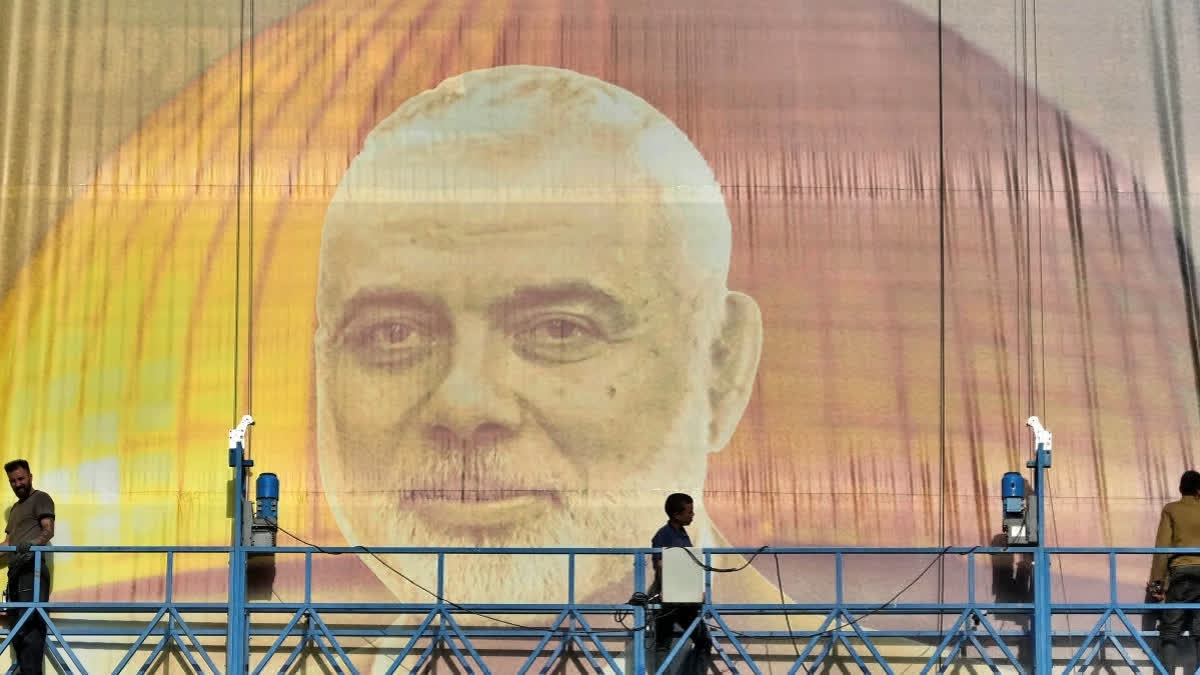Jerusalem:Palestinian militant group Hamas prepares to choose a political leader after the killing of Ismail Haniyeh in a Wednesday attack in Tehran blamed on Israel. Speculation is swirling over the crucial succession almost 10 months into the Gaza war which erupted following Hamas's October 7 attack on Israel.
Qatar-based Haniyeh, elected Hamas's political chief in 2017, died in a pre-dawn strike on his accommodation while he was visiting the Iranian capital for the swearing-in ceremony of President Masoud Pezeshkian.
The context of this succession -- a violent death amid a months-long war in Gaza -- may influence the future of Hamas more than the individual personality of its leader. Despite the emergence of pragmatists moving toward indirect recognition of Israel's right to exist, Hamas members remain committed to an uncompromising approach to the struggle for a Palestinian state, including through armed means.
A source from the group told AFP that "relations with Arab and Islamic countries" will also be taken into account in picking its next leader.
Here are some of the senior officials tipped as Hamas's next potential political leader:
- Khalil al-Hayya -
Khalil al-Hayya is the deputy head of Hamas's political bureau in the Gaza Strip and is said to be well acquainted with the group's leader in the territory Yahya Sinwar. In 2006 Hayya headed Hamas's parliamentary bloc, which had just won elections. The subsequent months of political and administrative discord marked the beginning of the schism between the Islamist movement and Fatah, the party of Palestinian Authority President Mahmud Abbas.
Hayya, who has repeatedly stressed the importance of armed struggle, lost several family members in Israeli military operations including one that targeted his house in the northern Gaza Strip in 2007.
- Musa Abu Marzuk -
The senior member of Hamas's political bureau is considered similar to Haniyeh in his pragmatic approach to negotiations. For instance, Marzuk has spoken out in favour of a "long-term ceasefire" with Israel, and favours accepting the Palestinian borders drawn after the 1967 Arab-Israeli war, which remains contentious for some within Hamas.
In the 1990s he lived in the United States, where he was arrested on charges of raising funds for the movement's armed wing. He then lived in exile, including in Jordan, Egypt and Qatar.
